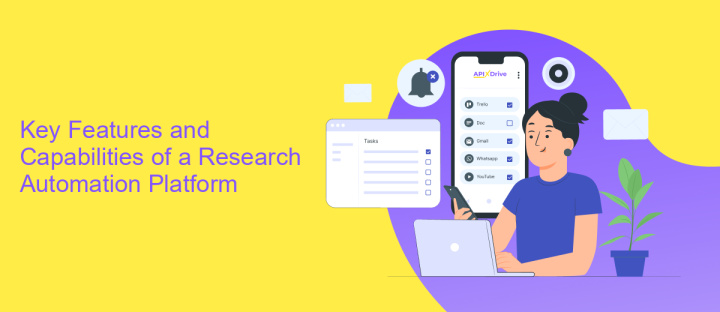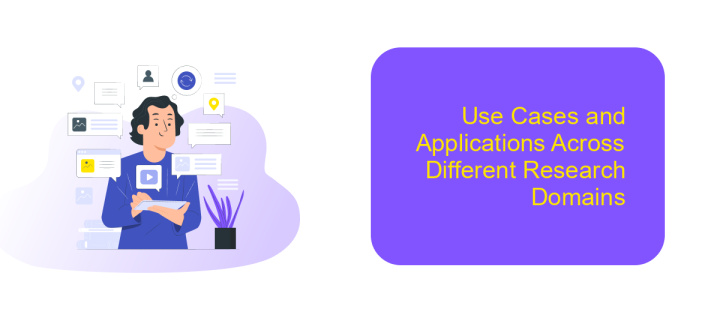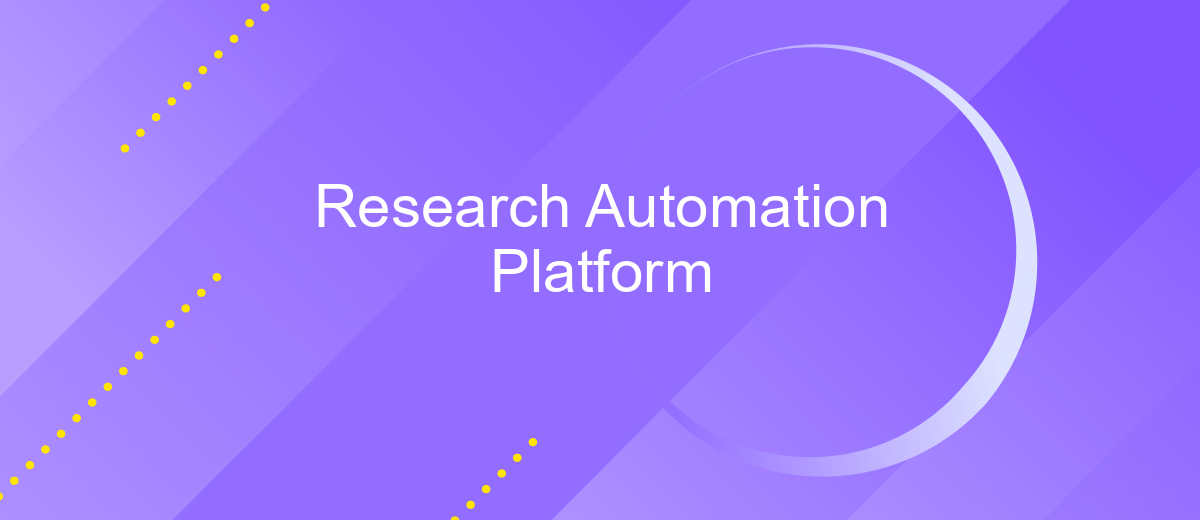Research Automation Platform
In today's rapidly evolving technological landscape, the demand for efficient and effective research processes has never been greater. The Research Automation Platform emerges as a transformative solution, streamlining complex research tasks and enhancing productivity. By automating data collection, analysis, and reporting, this platform empowers researchers to focus on innovation and discovery, ultimately accelerating advancements across various fields. Discover how this cutting-edge tool is revolutionizing the research industry.
Introduction: The Rise of Research Automation
In recent years, the landscape of research has undergone a significant transformation with the advent of research automation platforms. These platforms have revolutionized the way researchers gather, analyze, and interpret data, leading to more efficient and accurate outcomes. By leveraging advanced technologies such as artificial intelligence and machine learning, research automation platforms streamline complex processes, allowing researchers to focus on innovation and discovery.
- Enhanced data collection and processing capabilities
- Reduction in time and human error
- Improved reproducibility and consistency of results
- Facilitation of large-scale studies and collaborations
- Cost-effective solutions for research institutions
As the demand for faster and more reliable research increases, the role of research automation becomes even more crucial. These platforms not only enhance productivity but also democratize access to sophisticated research tools, enabling a broader range of scientists and institutions to participate in groundbreaking studies. The rise of research automation marks a new era in scientific exploration, where technology and human inquiry work hand in hand to push the boundaries of knowledge.
Key Features and Capabilities of a Research Automation Platform

A Research Automation Platform streamlines the research process by offering a suite of powerful features designed to enhance efficiency and accuracy. One key capability is data aggregation, where the platform automatically collects and consolidates data from multiple sources, ensuring researchers have access to comprehensive datasets without manual effort. Advanced analytics tools are integrated to provide in-depth insights, allowing users to perform complex data analysis with ease. Additionally, customizable dashboards offer a user-friendly interface to visualize data trends and patterns, facilitating informed decision-making.
The platform also supports seamless integration with third-party applications, enhancing its versatility. For instance, using services like ApiX-Drive, researchers can automate data transfers and synchronize information across various tools, eliminating the need for repetitive tasks. This integration capability ensures that the platform can adapt to diverse research needs, providing a cohesive and flexible environment. Furthermore, the platform includes collaborative features, enabling teams to work together efficiently, share insights, and manage projects in real-time, fostering a more dynamic research process.
Benefits of Implementing a Research Automation Platform

Implementing a Research Automation Platform can significantly enhance the efficiency and accuracy of research processes. By automating repetitive tasks, researchers can focus more on analysis and innovation, leading to more insightful outcomes. This technology streamlines data collection and management, ensuring that research is conducted with precision and speed.
- Increased Efficiency: Automating routine tasks reduces the time spent on manual data entry and analysis.
- Improved Accuracy: Minimizing human error through automation leads to more reliable data.
- Cost Reduction: Streamlining processes can lead to significant savings in both time and resources.
- Enhanced Collaboration: A centralized platform allows for better communication and data sharing among research teams.
- Scalability: Easily manage larger datasets and more complex research projects with automation tools.
Overall, a Research Automation Platform not only optimizes existing workflows but also opens up new possibilities for innovation and discovery. By embracing automation, research institutions can stay ahead in an increasingly data-driven world, ensuring their findings are both timely and impactful.
Use Cases and Applications Across Different Research Domains

Research Automation Platforms are revolutionizing various research domains by enhancing efficiency and accuracy. These platforms streamline complex processes, enabling researchers to focus on innovative aspects of their work. By automating repetitive tasks, researchers can allocate more time to data analysis and interpretation, driving significant advancements in their fields.
In the realm of life sciences, these platforms facilitate drug discovery by automating data collection and analysis, expediting the identification of potential compounds. In social sciences, they enable large-scale data analysis, offering insights into human behavior and societal trends. Environmental researchers leverage these tools to monitor ecological changes, providing real-time data for better decision-making.
- Life Sciences: Accelerated drug discovery and genomic research.
- Social Sciences: Enhanced data analysis and trend identification.
- Environmental Studies: Real-time ecological monitoring and data collection.
- Engineering: Streamlined prototyping and testing processes.
- Economics: Automated financial modeling and market analysis.
Overall, Research Automation Platforms are indispensable across diverse research domains. They not only increase productivity but also open new avenues for exploration and discovery. As these technologies continue to evolve, their applications are expected to expand, further transforming the landscape of research and innovation.
- Automate the work of an online store or landing
- Empower through integration
- Don't spend money on programmers and integrators
- Save time by automating routine tasks
Choosing the Right Research Automation Platform: Key Considerations
When selecting a research automation platform, it's crucial to evaluate your specific needs and objectives. Start by considering the scale and scope of your research projects. A platform that offers scalability can adapt to your growing demands, ensuring seamless data collection and analysis. Additionally, assess the user interface and ease of use, as an intuitive platform can significantly reduce the learning curve for your team, enhancing productivity and efficiency.
Integration capabilities are another vital factor. Choose a platform that easily integrates with your existing tools and software to streamline workflows. Services like ApiX-Drive can be invaluable here, offering effortless integration solutions that connect various applications, reducing manual data entry and errors. Furthermore, consider the platform's support and customer service, ensuring that you have access to assistance when needed. Lastly, evaluate the cost-effectiveness of the platform, balancing features and budget to ensure a smart investment for your research automation needs.
FAQ
What is a Research Automation Platform?
How can a Research Automation Platform benefit my research team?
What types of research activities can be automated?
How do I integrate a Research Automation Platform with existing tools?
Is technical expertise required to use a Research Automation Platform?
Time is the most valuable resource for business today. Almost half of it is wasted on routine tasks. Your employees are constantly forced to perform monotonous tasks that are difficult to classify as important and specialized. You can leave everything as it is by hiring additional employees, or you can automate most of the business processes using the ApiX-Drive online connector to get rid of unnecessary time and money expenses once and for all. The choice is yours!


